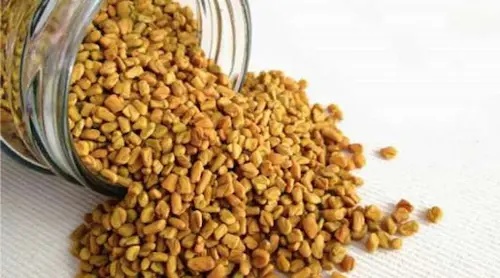Fenugreek, a humble spice with a myriad of health benefits, has been used in traditional medicine for centuries. Packed with essential nutrients like iron, protein, and fiber, fenugreek seeds offer a natural remedy for a variety of health conditions. Let’s delve into the benefits of fenugreek tea and how to prepare it.
How to Prepare Fenugreek Tea
- Boil: Add a teaspoon of fenugreek seeds to a cup of water.
- Simmer: Bring to a boil and then simmer for about 3 minutes.
- Strain: Strain the tea into a cup.
- Sweeten: Add honey or a natural sweetener to taste.
Health Benefits of Fenugreek Tea
- Digestive Health: Fenugreek tea can help alleviate constipation, bloating, and indigestion. Its fiber content promotes regular bowel movements and aids in digestion.
- Blood Sugar Control: Studies have shown that fenugreek can help lower blood sugar levels, making it beneficial for people with diabetes.
- Heart Health: The potassium in fenugreek helps regulate blood pressure, reducing the risk of heart disease.
- Women’s Health: Fenugreek can help relieve menstrual cramps and promote lactation in breastfeeding mothers.
- Skin Health: Fenugreek has anti-inflammatory properties that can help soothe skin irritations and promote healing.
- Hair Health: Fenugreek is believed to strengthen hair and promote hair growth.
- Weight Management: Fenugreek can help control appetite and promote weight loss by making you feel full.
- Anti-inflammatory: Fenugreek has anti-inflammatory properties that can help reduce inflammation in the body.
Other Potential Benefits
Fenugreek has been traditionally used for a wide range of other health benefits, including:
- Boosting the immune system
- Improving liver health
- Reducing cholesterol levels
- Treating respiratory conditions
Fenugreek for Skin and Hair Care
Fenugreek, with its impressive nutrient profile, isn’t just beneficial for internal health; it also offers remarkable advantages for your skin and hair.
Fenugreek for Hair Care
- Hair Growth: Rich in proteins and lecithin, fenugreek nourishes the scalp, strengthens hair follicles, and can potentially stimulate hair growth.
- Dandruff Control: The anti-inflammatory properties of fenugreek can help soothe an itchy scalp and reduce dandruff.
- Hair Conditioning: Fenugreek’s natural oils can help moisturize and condition your hair, leaving it soft and shiny.
How to use fenugreek for hair:
- Hair mask: Soak fenugreek seeds overnight, grind them into a paste, and apply it to your scalp and hair.
- Hair rinse: Boil fenugreek seeds in water, let it cool, and use the water as a final rinse after shampooing.
Fenugreek for Skin Care
- Anti-Aging: Fenugreek’s antioxidant properties can help combat free radicals, reducing signs of aging like wrinkles and fine lines.
- Acne Treatment: Its anti-inflammatory and antibacterial properties can help soothe acne-prone skin and reduce redness.
- Moisturization: Fenugreek can hydrate the skin, leaving it soft and supple.
How to use fenugreek for skin:
- Face mask: Create a paste of soaked fenugreek seeds and apply it to your face for a rejuvenating mask.
- Skin toner: Boil fenugreek seeds in water, let it cool, and use the water as a toner.
Remember: While fenugreek offers potential benefits for skin and hair, individual results may vary. If you have specific skin or hair concerns, consult with a dermatologist or trichologist.
Precautions
While fenugreek is generally safe for consumption, it’s essential to consult with a healthcare provider before using it as a treatment for any medical condition, especially if you are pregnant, breastfeeding, or taking any medications.
Incorporating fenugreek tea into your daily routine can be a simple and effective way to support your overall health and well-being.
